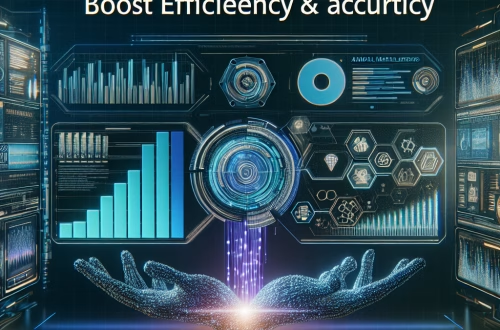ChatGPT vs Open Source AI Models
Summary:
ChatGPT, developed by OpenAI, is a leading proprietary large language model (LLM) designed for natural language processing, while open-source AI models like LLaMA or GPT-J provide community-driven alternatives. Both have distinct advantages: ChatGPT offers polished performance and ease of use, whereas open-source models grant customization, transparency, and cost efficiency. Understanding the differences helps businesses, developers, and AI novices choose the right tool for their needs. This article explores the strengths, weaknesses, and best use cases for each.
What This Means for You:
- Cost vs. Control: Proprietary models like ChatGPT require subscription fees or API costs, while open-source AI models allow self-hosting for free or at lower expenses. If budget is a concern but you need flexibility, open-source may be ideal.
- Customization & Privacy: Open-source models let you modify and fine-tune AI as needed, making them preferable for privacy-sensitive applications. Evaluate whether transparency in AI decision-making is crucial for your project.
- Ease of Use & Support: ChatGPT offers a plug-and-play solution with robust customer support, while open-source models require technical expertise. If coding isn’t your strength, proprietary options may be more practical.
- Future Outlook or Warning: The AI landscape is evolving rapidly; open-source models could catch up in capabilities, but ChatGPT may dominate with enterprise features. However, regulatory scrutiny and ethical concerns around data privacy in proprietary AI could push demand for open alternatives.
Explained: ChatGPT vs Open Source AI Models
Understanding ChatGPT: A Proprietary Powerhouse
ChatGPT, a product of OpenAI, is one of the most widely recognized AI models, known for its conversational abilities, strong coherence, and broad knowledge base. It leverages reinforcement learning from human feedback (RLHF) and extensive training to produce human-like responses. Businesses use it for customer service, content generation, and coding assistance due to its polished and reliable output.
Key Strengths of ChatGPT
- Polished, Production-Ready Responses: Minimizes the need for post-generation editing.
- Enterprise Integration: Works with widely adopted tools via API (e.g., Microsoft, Slack).
- Strong Ongoing Support: OpenAI continuously refines the model and addresses issues.
Weaknesses of ChatGPT
- Costly at Scale: Subscription tiers and API calls can become expensive.
- Closed Ecosystem: No visibility into training data or fine-tuning methods.
- Limited Customization: Users can’t modify underlying model architectures.
Open Source AI Models: Flexibility & Transparency
Open-source AI models, such as Meta’s LLaMA or EleutherAI’s GPT-Neo, are community-driven alternatives. They allow developers to download, modify, and deploy AI models without licensing restrictions, making them ideal for niche use cases, research, or privacy-conscious industries.
Key Strengths of Open-Source AI
- Full Customization: Adjust architecture, training data, and fine-tuning.
- Lower Long-Term Costs: No recurring fees if self-hosted.
- Auditable & Transparent: Researchers can scrutinize model behavior.
Weaknesses of Open-Source AI
- Technical Barriers: Requires ML expertise to deploy effectively.
- Inconsistent Quality: May lack refinement compared to proprietary models.
- Limited Enterprise Support: Reliant on community or third-party vendors.
Best Use Cases for Each
- ChatGPT: Business applications, customer service automation, non-technical users.
- Open Source Models: Research, privacy-first apps, specialized AI development.
People Also Ask About:
- Is ChatGPT better than open-source AI models?
ChatGPT is superior in usability and out-of-the-box performance but is less flexible than open-source models. If ease of use is a priority, ChatGPT wins. For customization and transparency, open-source models are better.
- Can open-source AI models replace ChatGPT?
Not yet for general use, but open-source models are rapidly improving. With sufficient computational resources and fine-tuning, they can rival proprietary models in specific applications.
- Are open-source AI models free?
Yes, the models themselves are free, but running them requires hardware (GPU/cloud costs) and technical expertise. Total expenses can be lower than ChatGPT subscriptions at scale.
- Is my data safe with ChatGPT vs. open-source models?
Open-source models allow fully private deployment, whereas ChatGPT processes data on OpenAI’s servers. If compliance and confidentiality are critical, self-hosting open-source AI is safer.
Expert Opinion:
The AI industry is shifting toward more accessible and customizable models, but proprietary solutions like ChatGPT still dominate in enterprise reliability. Open-source alternatives are gaining traction in research and specialized applications. Privacy regulations and transparency demands may force companies to prefer self-managed open models, though OpenAI’s continuous improvements keep it ahead in natural language fluency. Future competition will likely accelerate innovation on both fronts.
Extra Information:
- OpenAI’s ChatGPT Research – Overview of ChatGPT’s development and technical insights.
- Meta’s LLaMA GitHub – Official repository for the open-source LLaMA model.
- EleutherAI – A key contributor to open-source language models like GPT-Neo and GPT-J.
Related Key Terms:
- ChatGPT vs LLaMA performance comparison
- Open-source AI models for business applications
- Cost of running ChatGPT API vs self-hosted AI
- Customizing open-source large language models
- Privacy concerns with proprietary AI models
Check out our AI Model Comparison Tool here: AI Model Comparison Tool
#ChatGPT #Open #Source #Models #Choose
*Featured image provided by Dall-E 3





